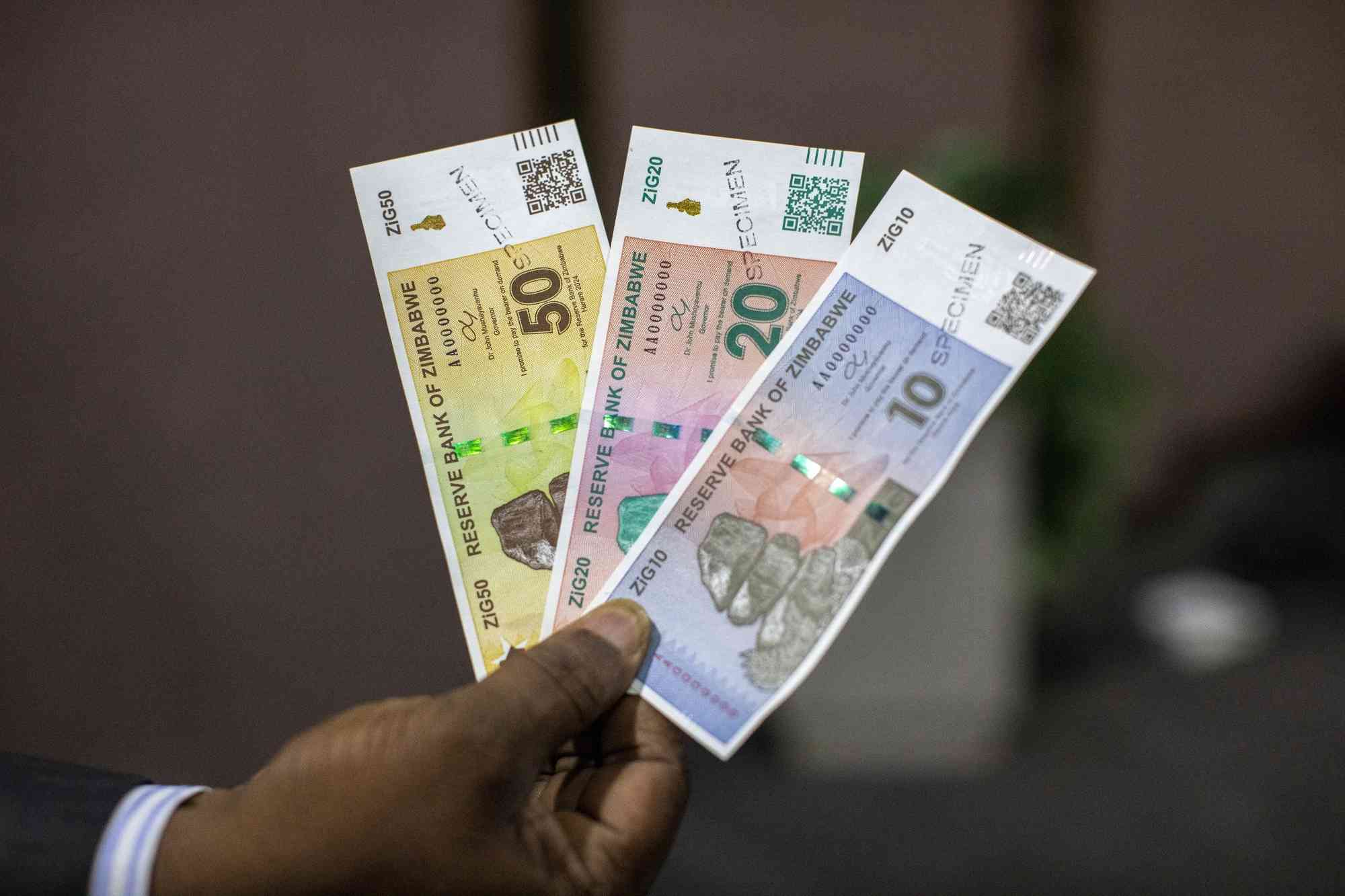
A serious shortage of Zimbabwe Gold (ZiG) has hit the market despite monetary authorities releasing notes and coins last month amid fears the crunch will affect aggregate demand.
The Reserve Bank of Zimbabwe (RBZ) started circulating ZiG notes and coins last monthend. The ZiG replaced the Zimbabwean dollar, which had lost three-quarters of its value this year.
A survey conducted by Standardbusiness last week showed that ZiG notes were not readily available through banks. Shortages were observed in various sectors including transport, supermarkets and the informal market.
The situation is causing disruptions to businesses.
“We do not have enough ZiG from the central bank,” economist Gift Mugano told Standardbusiness.
“The size of the money supply is about ZiG$90 million and the size of our economy is about ZiG$ 20 billion.
“So, the question is how does the government liquidate and expect to provide enough cash in the market when you have that small share of ZiG?
“The central bank has not printed enough ZiG.
- Bodies ‘rotting’ at UBH
- SOS for slain Elvis Nyathi’s children
- Bulawayo water woes persist despite rains
- CCC moves to consolidate support base
Keep Reading
“Last time I checked, they had printed small denominations and as a result, they have starved the market.
“That’s a failure, so the bank must print enough ZiG currency and enough denominations for the market.
“At this stage we should not be struggling to access ZiG just for change, its serious incompetence on behalf of the central bank.”
He said the scarcity of the ZiG could lead to increased dollarisation, undermining the intended purpose of the local currency.
“Even the governor (John Mushayavanhu) is very clear in his monetary policy that he is pushing for banks to put certain liquidity into non-negotiable instruments so that they dry the market,” Mugano said.
“What he does not realise is that he is finalising dollarization, because if ZiG is not available, what is available is the US dollar.
“So we are going to use the foreign currency. He effectively brought small denominations and delayed the disbursement of large denominations.”
Another economist Prosper Chitambara said the shortage could be a result of the central bank’s cautious approach to avoid introducing too much liquidity into the economy, which could destabilise it.
“It could be a supply issue; the central bank did not print enough money,” Chitambara said.
“Maybe they are trying to monitor the situation because you do not want to introduce too much liquidity in the economy; it can actually have a destabilising impact on the economy,” he said.
“Of course, there is a strong demand for the ZiG, especially for the purposes of facilitating change.
“So obviously, we need to create that fine balance in terms of ensuring that there is enough supply of ZiG.”
National Consumer Rights Association coordinator Effie Ncube said the shortage was causing serious havoc in the market.
“There are insufficient ZiG notes circulating at the moment and I think there is a deliberate move on the part of the RBZ to limit money supply, but then what is needed is to inject smaller denominations lower than ZiG$10,” Ncube said.
“People are being forced to purchase goods at a higher price and round figures because there is no change. We need smaller denominations like ZiG$1, ZiG$2.”
Combined Harare Residents Association director Reuben Akili said the unavailability of the ZiG cash had led to overcharging and forced bulk purchases, particularly in the informal sector.
“We have been doing some monitoring on these issues, and we have realised that this has impacted on how people do business,” Akili said.
“ ZiG is not available, especially in the markets, vendors and even at the kombis.
“People are being overcharged because they are not able to get the 50 cents change.
“People are also forced to buy something that they do not want due to unavailability of the local currency and this is a serious problem.”
Bankers Association of Zimbabwe chief executive officer Fanwell Mutogo said: “Banks, typically order cash from the central bank based on the demand for cash they anticipate from their customers.
“We are not sure which customers are affected.
“Moreover, customers are encouraged to use digital means of transacting.
“This is part of a broader push towards digitisation, which can help reduce the reliance on physical cash, improve efficiency, and potentially alleviate some of the issues related to cash availability.”
Efforts to get a comment from Mushayavanhu were fruitless as his number went unanswered.
Zimbabwe has been struggling with its currency for more than a decade. The ZiG is the southern African country’s sixth attempt to deliver a functioning local currency since 2008.










